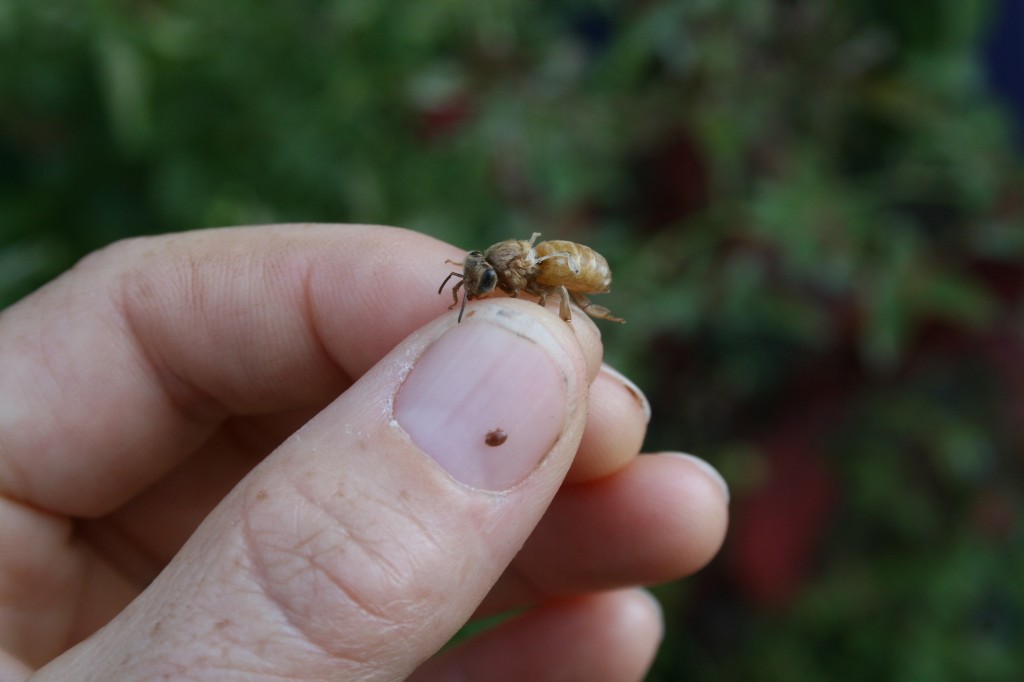 In Ross Conrad’s book Natural Beekeeping, there’s a great chapter on hive diseases and also a helpful section on how to autopsy a hive. To get a definitive answer on what is ailing your bees (while they’re still alive) here in the Northwest, you can send a sample of your ailing bees to the Oregon State University Honey Bee Lab where they will be analyzed for varroa, nosema and tracheal mites for free. I asked Carolyn Breece, Research Assistant at the Lab if they tested for chemical and pesticide exposure as well. She said they send those samples to Penn State where they are analyzed for $130 per sample- pretty steep for the average beekeeper- but if you’re fueled with a burning desire to know why your healthy colony up and dies after your neighbors take out their pesticide sprayers- it will provide the proof you need to show them how the chemicals they use on their landscape eventually end up inside your hives. Here are the instructions for sending a sample to the OSU Bee Lab:
In Ross Conrad’s book Natural Beekeeping, there’s a great chapter on hive diseases and also a helpful section on how to autopsy a hive. To get a definitive answer on what is ailing your bees (while they’re still alive) here in the Northwest, you can send a sample of your ailing bees to the Oregon State University Honey Bee Lab where they will be analyzed for varroa, nosema and tracheal mites for free. I asked Carolyn Breece, Research Assistant at the Lab if they tested for chemical and pesticide exposure as well. She said they send those samples to Penn State where they are analyzed for $130 per sample- pretty steep for the average beekeeper- but if you’re fueled with a burning desire to know why your healthy colony up and dies after your neighbors take out their pesticide sprayers- it will provide the proof you need to show them how the chemicals they use on their landscape eventually end up inside your hives. Here are the instructions for sending a sample to the OSU Bee Lab:
Collect 100-200 live bees from a brood frame into the empty sample cup. Replace lid and place this jar in the freezer until shipped to us. Thawed bees will be OK in mail for a few days, but will begin to decay if left thawed for a prolonged period. Please freeze bees immediately after sampling and keep in freezer until ready to mail (see address below).
Please mark your sampled colonies with respective numbers so that you can provide us the survival status of the hive in Spring 2013.
We will analyze the bees for varroa, nosema, and tracheal mites. Please don’t send bees that have been dead already. They will be too decayed for analysis.
Carolyn Breece- Honey Bee Lab, Department of Horticulture, Oregon State University, 4017 ALS Bldg. Corvallis, OR 97331